During the closing circle of Agile Coach Camp 2014 our facilitator – Deb Hartmann Preuss – asked us: Which word described our experiences during the conference? The word that immediately came to mind was “humbling”.
[featured-image single_newwindow=”false” alt=”CS | Share | Flickr.com” title=”CS | Share | Flickr.com”]CS | Share | Flickr.com[/featured-image]
Agile Coach Camp is an open space event. It’s an “unconference” where agile coaches network and develop relationships while inventing ideas, concepts and practices. The attendees come up with high-level topics and create their own conference agenda – better known as the marketplace.
They then gather around the topics that interest them and collaborate, plan, discuss, and dig deeper as a group to develop new “things”. You can fine more information about the open space concept here.
One of the interesting parts about this format is that the presenter is actually a facilitator. They are responsible for proposing a problem or an idea, but after that the session turns in to a dynamic group discussion.
At this year’s Agile Coach Camp, some of the biggest names in the industry showed up. People like Diana Larsen, Esther Derby, Don Gray, George Dinwiddie, and Tim Ottinger facilitated and presented alongside the other 90 participants.
While it was humbling, it was also amazing. Getting to exchange ideas with some of the best coaches in the industry was tremendous fun. That kind of interaction is simply not possible at the larger conferences. It is a level of sharing that I’ve never seen in a community.
In fact, many of the topics we discussed would not have made it in to the agenda of a traditional conference. Those events are filled with talks on metrics, agile tools, and scaling scrum.
At Agile Coach Camp, the focus is squarely on individuals and interactions and not process and tools.
To give you an idea of this, here are some of the sessions that I attended:
- Agile Game Mechanics (@paul_boos): A discussion on how traditional game mechanics – random event decks, dice rolling, character creation, quest mechanics, and action points – can be used to develop agile games and simulations.
- Conjoint Coaching (@gdinwiddie): Coaching teams as a whole and how to model behavior. Also a great discussion on observing teams and feedback loops to get to the core of what drives the way people interact on an agile team.
- Thinking for a Living (@tottinge): The challenges of breaking away from the factory mindset in an age where your job is to think, not assemble. We looked at how the brain works, how naps make people more productive, and even the best time to have a parole hearing (ego depletion example).
- BA’s Role on an Agile Team (@agilesquirrel): Where does a BA fit on an agile team? Should they be a scrum master or a product owner? Is “business analyst” a valid agile role? These questions and how to avoid a squirrel attack were covered in detail.
- Agile Coaching is Dead (@howardsublett): An incredibly honest discussion about whether or not agile coaching is a bubble ready to burst. We also dove in to the role that certification bodies play in the impending demise of the agile coach, along with what agile coaches can do to change direction and bring value to their customers.
The outcomes of these talks led to what many of us called “ideas too big to tweet”. The conversations were rich and we all walked away with new ideas and more importantly new friends.
This is now my favorite “unconference” that I will keep on my schedule for years to come. Next year Agile Coach Camp is in DC. I hope to see you there.
To read more about Agile Coach Camp 2014 and the sessions you can visit the event log site here.
[reminder]Have you attended a conference that changed the way you look your work? Your life? Please share in the comments below.[/reminder]
